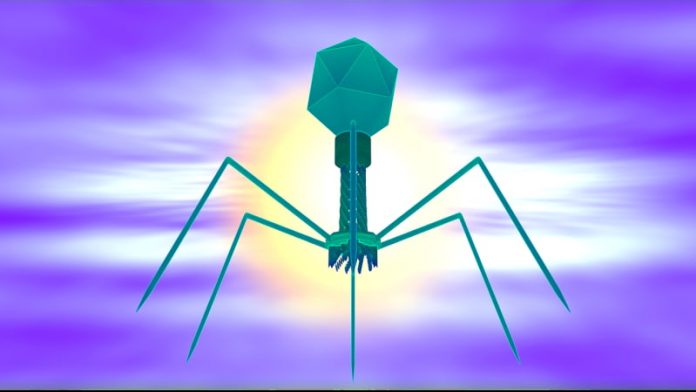Bacteria, they’re just like us, eh?
Well not really, but one of the features we do share, is that viruses love to hijack our cellular machinery.
Bacterial viruses are big trouble for their bacterial hosts, but scientists are taking advantage of their ability to target specific cell types to develop new tools for cancer diagnosis and treatment.
A bug bacteria don’t want to catch
Bacteriophages, or phages, are viruses that only infect and replicate in bacterial cells. They cannot reproduce without a host cell, which they rely on for energy and materials to create new phages.
We could think of them as intracellular parasites, but these aren’t parasites that lurk for long.
Once a phage attaches to a bacterial cell, it injects its genetic material into the host, taking control of the cell’s machinery to produce more phage particles. These new phages eventually burst out of the host cell (lysis) and infect other bacterial cells.1, 2
Their ability to target and kill bacteria makes phages a prime candidate for use in treating bacterial infections- especially since antibiotic-resistant bacterial infections are on the rise.2
This highly specific targeting ability is also extremely useful for hunting down cancer cells.
Bacteriophages to track and trace human cancer cells
Bacteriophages can be used to diagnose cancer. A phage can be modified to carry specific proteins that bind to human cancer cells, allowing non-invasive detection and monitoring of cancer progression.
In fact, phages have already shown potential in detecting gastrointestinal cancers. Those phages were engineered to produce fluorescent signals in the presence of cancer markers that were easily detected using imaging techniques such as fluorescence microscopy.1
Bacteriophages as cancer killers
In recent years, there has been interest in using bacteriophages as a therapeutic tool for cancer treatment.1
They can potentially shrink or kill tumors in several ways:
Inducing direct cell death
Bacteriophages can be genetically modified to target specific types of cancer cells and can deliver therapeutic agents such as chemotherapy drugs directly to cancer cells.
When phages infect cancer cells, they do what viruses do, multiplying until they burst the host cell.1 Since these are bacterial viruses, they can’t infect human cells unless they carry the programmed-in cancer marker making them an extremely fine-tuned tool.
Triggering an immune response
Bacteriophages can activate immune cells, generating an anti-tumor response. They can attract immune cells to the infected area prompting the immune system to attack the tumor.
They can bind to receptors on the surface of specific immune cells, triggering a response. This response can include the production of inflammatory molecules, the activation of phagocytosis (the process by which immune cells eat bacteria), and triggering the production of antibodies.1, 2
Keeping the host site clean
Bacteria present in the tumor microenvironment can promote tumor growth and decrease the effectiveness of chemotherapy. Phages can kill off these bugs, improving the efficacy of chemotherapy.2
So next time you catch a virus, remember that it happens to all of us, even bacteria-but what’s bad for them might be pretty good for us!
References
- Foglizzo V, Marchiò S. Bacteriophages as Therapeutic and Diagnostic Vehicles in Cancer. Pharmaceuticals (Basel). 2021;14(2):161. Published 2021 Feb 17. doi:10.3390/ph14020161
- Krut O, Bekeredjian-Ding I. Contribution of the Immune Response to Phage Therapy. The Journal of Immunology. 2018;200(9):3037-3044. Published 2018 May 1. doi:10.4049/jimmunol.1701745



